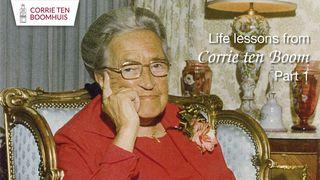Genesis 1-2: Verse by Verse With Bible Study FellowshipSample
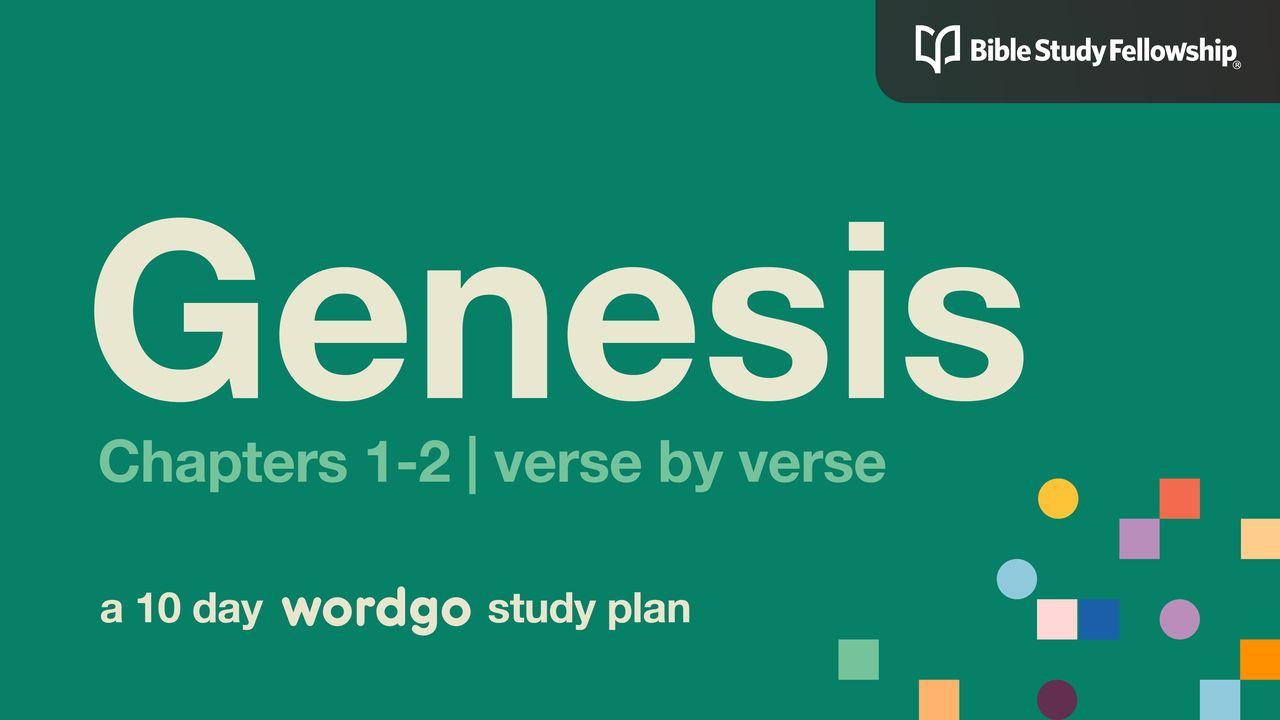
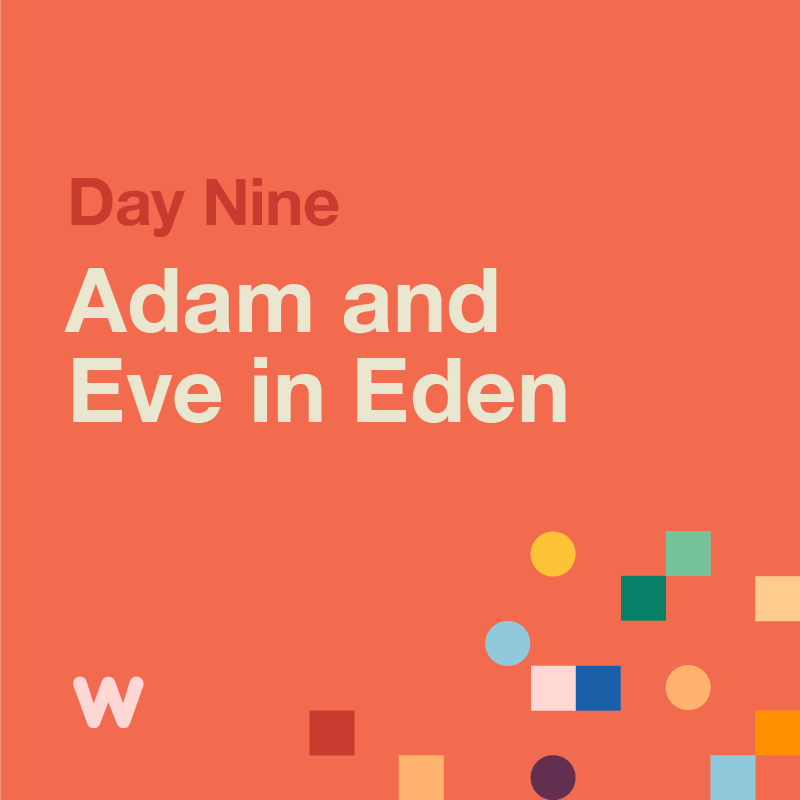
The Lord God Creates Eden
Genesis 2:4-14 describes God personally planting a garden as the home for humanity. Eden means “garden, paradise, or delight.” The name Eden conveys the idea of bliss. Where was Eden? We do not know. Archaeology places the earliest civilization in the modern Tigris-Euphrates area of the Fertile Crescent, near present-day Iraq.
God plants a beautiful variety of trees that produce all kinds of good food. God names two trees He plants in the center of Eden. The tree of life symbolizes the eternal life God gives human beings. The tree of the knowledge of good and evil represents the one prohibition God gave Adam, testing his trust in God and willingness to live by His Word. Eating from that tree would cause Adam to die, a tragic reality recorded in Genesis 3.
These verses also picture Eden’s rivers and nearby lands as filled with metals and precious stones. While the rivers’ descriptions are literal, there also seems to be spiritual significance. Scripture uses fresh (moving) water to symbolize goodness, abundance and eternal life.1
The Lord God Creates Adam
The tender scene in Genesis 2:7 helps us know and respond to God. We see God is transcendent (infinitely greater) and immanent (intimately near). God seeks and draws us to Himself, ultimately through God the Son becoming the man, Jesus Christ. Paul describes this relationship to believers, “For as in Adam all die, so in Christ all will be made alive” (1 Corinthians 15:22). Consider how these truths unite us as one humanity:
- God forms Adam’s body from the dust of the ground.
- Adam’s creation from dust anchors people to the earth God also created.
So, human beings are made in the image of God, but we are not ever gods.
- God breathes the sacred breath of His own life into Adam’s nostrils.2
- God shares life with Adam.
So, human identity is forever tethered to God’s will.
Before Adam sins, he is a “living being” with a “natural body.”3 However, after Adam and Eve sin, God blocks their access to the tree of life. God’s ultimate purpose for people is that our natural bodies become glorified bodies – incorruptible and immortal – through salvation in Jesus Christ. As Paul also teaches, “and just as we have borne the image of the earthly man, so shall we bear the image of the heavenly man” (1 Corinthians 15:49).
The Lord God Educates Adam
In verses 15-20, God prepares Adam for his privileges and responsibilities as His image-bearer. Untouched by sin, Adam lives in a blissful relationship with the Lord God. God gave Adam meaningful work as a garden tender and shepherd, to be done with honor and care, and to develop all his abilities.
In verse 18, the Lord God announces His plan to make a suitable helper for Adam, as it is “not good” for him to be alone. God then instructs Adam to examine the animals to give them names. God has several purposes for Adam as He brings each animal to him:
- Intellectual growth and personal enjoyment
- Practice caring for these animals who were all subject to him
- Awareness of the great gulf between even the most intelligent animal and himself
- Reverence and gratitude for God’s grace to be the one chosen to bear God’s imageRecognition that God planned male and female beings to work together, to reproduce, to raise offspring and to preserve their communities
- Ultimately, Adam discovers no animal could meet his own need for human companionship, or a suitable helper.
Questions
- Which details about God’s creation of Adam and the Garden of Eden stand out (2:4-14), and why?
- Combine God’s commands in 2:15-17 with those in 1:28-29. What does a life of obedience to God look like?
Insights: Responses include ideas such as: Adam and Eve were to represent God in caring for the garden and all creatures. They were to work the garden and take care of it (2:15). They were not to eat from the tree of the knowledge of good and evil (2:17). God tested their devotion by giving them productive work to do and commanding them one thing not to do. - How do our relationships with God, one another and creation today compare to what God establishes in these verses (2:15-20)?
Related Verses
- Jesus the Living Water: John 4:10-14
- God’s breath of life: Job 12:10; 32:8; 33:4; John 20:22
- Human bodies: 1 Corinthians 15:44-50, 53-54; Covenant: Genesis 9:9-10, 13
Scripture
About this Plan

What do you wonder about God, yourself and everything else that fills our world? Genesis declares the whole story: the God who graciously creates splendor is also the God who lovingly redeems His creation from sin, giving us hope for our lives and the world. Spend 10 days exploring God’s intended bliss; first created, and now revealed, to call all people to live under His love, authority and blessing.
More
We would like to thank Bible Study Fellowship for providing this plan. For more information, please visit: https://wordgo.org/
Related Plans
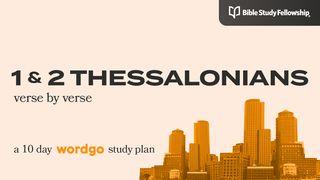
Thessalonians 1-2: Verse by Verse With Bible Study Fellowship
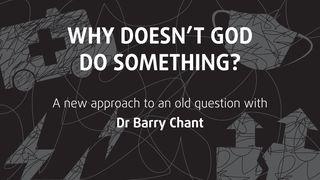
Why Doesn't God Do Something?

Wait on It
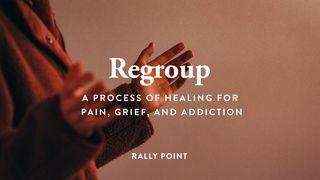
Regroup - a Process of Healing for Pain, Grief, and Addiction
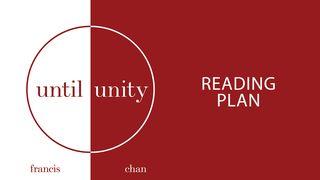
Until Unity
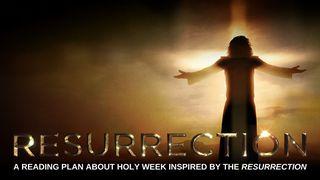
Resurrection

God Victorious - a 3-Day Devotional With Andrea Olson

Good News...for All People!

Trust in the Trials
